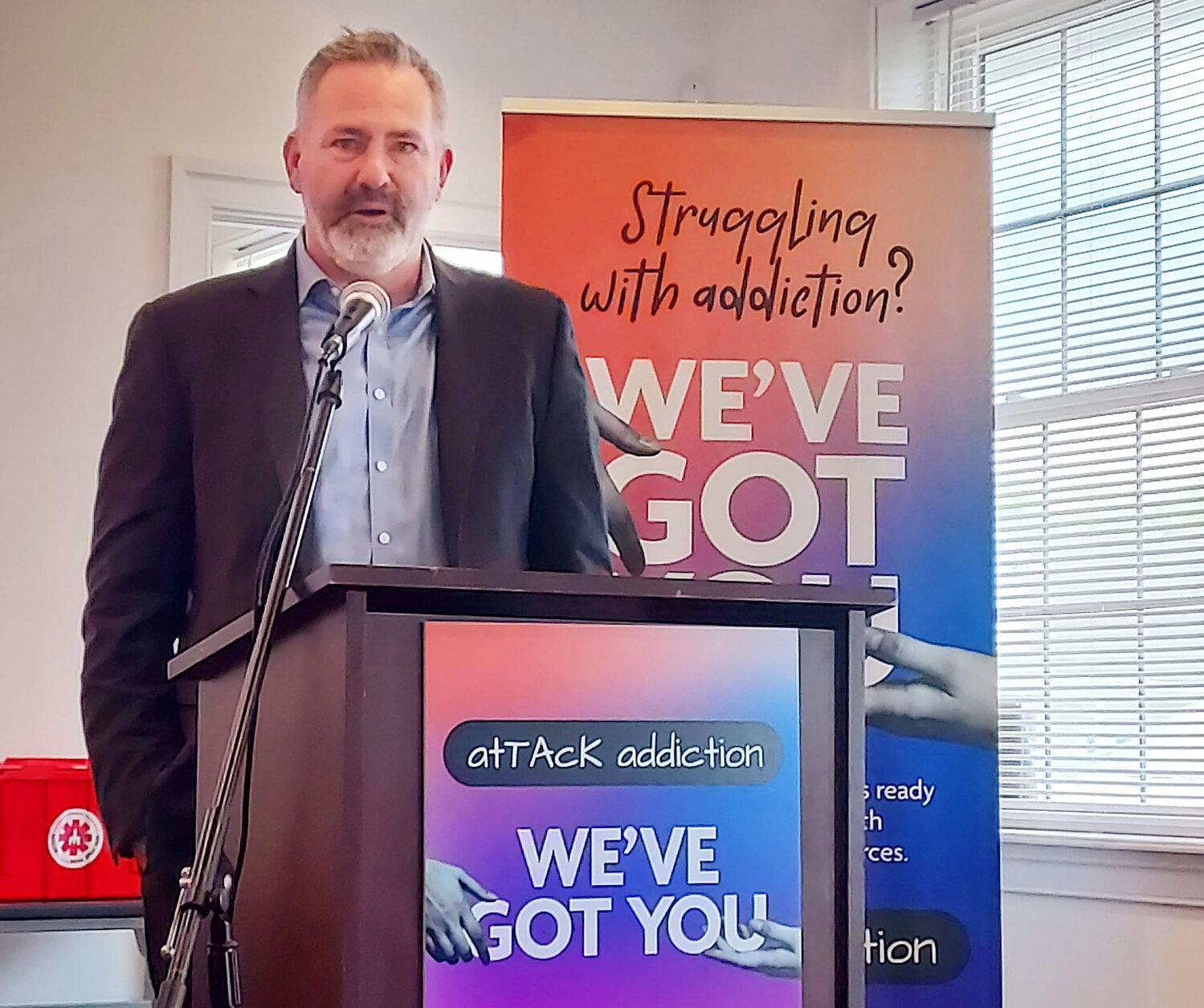Awareness, prevention focus of atTAcK addiction campaign in Delaware
Armed with a sizable grant, atTAcK addiction has launched a campaign to reduce the impact of the opioid crisis by connecting Delawareans suffering from substance use disorder and their families to helpful supports.

You must be a member to read this story.
Join our family of readers for as little as $5 per month and support local, unbiased journalism.
Already a member? Log in to continue. Otherwise, follow the link below to join.
Please log in to continue |
Awareness, prevention focus of atTAcK addiction campaign in Delaware
GEORGETOWN — Armed with a sizable grant, atTAcK addiction has launched a campaign to reduce the impact of the opioid crisis by connecting Delawareans suffering from substance use disorder and their families to helpful supports.
Introduced May 6 in Glasgow and Georgetown, the broad, bilingual effort comes as Kent and Sussex counties are experiencing a spike in overdose deaths. The Delaware Department of Health and Social Services reported 132 suspected overdose fatalities statewide from Jan. 21 through May 17.
“All along the spectrum, there are ways that we can prevent misuse … and get people connected to treatment and avoid overdoses and overdose death,” said Jill Fredel, atTAcK addiction’s communications director and board member.
The “We’ve Got You” campaign emphasizes how all Delawareans have a role to play in preventing opioid misuse, addiction, overdoses and fatalities, plus offers a connection to treatment and recovery services, in coordination with Health and Social Services, helpisherede.com and the Delaware Hope Line.
The campaign is funded through a $300,000 grant from Delaware’s Prescription Opioid Settlement Distribution Commission. It will support radio, print, digital and social media advertising, as well as messaging in convenience stores, at bus stops and inside buses in an effort to reach as many as possible.
Working with community partners, atTAcK addiction will ask them to share the prevention messages. In addition to connecting individuals and families to recovery services, the campaign urges Delawareans to:
- Get trained in how to use naloxone and to keep a kit at home or carry it. To schedule such training, contact atTAcK addiction at 302-365-5221 or info@attackaddiction.org.
- Clean out expired or unnecessary medications from homes and drop them off at designated collection sites.
- Call 911 if an overdose is being witnessed, knowing that neither the person calling nor the person in distress can be arrested, charged or prosecuted under the 911 “Good Samaritan” law.
- Talk with children about risks associated with drug misuse and understand the signs of substance use disorder.
Ms. Fredel said that, with the overdose surge, network partners are offering free naloxone kits and training sessions. She said everyone should learn how to use the antidote and keep it at home.
A 501(c)(3) nonprofit, atTAcK addiction was founded in 2013 by Don and Jeanne Keister, in memory of their son, Tyler Armstrong Keister, after his accidental overdose. The three capitalized letters, TAK, are Tyler’s initials.
“One of the things we, atTAcK addiction, heard over and over is (that) people don’t know where to turn. They will find out their adult daughter (or son) is suffering from substance abuse. They will confess to Mom and Dad, ‘I’m addicted to painkillers.’ They sit at the kitchen table, (asking,) ‘Now what?’” Ms. Fredel said. “Often, one of the first calls a parent makes is to atTAcK addiction because we were founded by parents who were in exactly that same position.”
She added, “Sometimes, it is easier to talk with people who either have lost a loved one or are in recovery because they understand where you are. It doesn’t matter which way you come in the door; the most important thing is that you come through that door. We will connect you to treatment. We need to meet individuals and families where they are and be able to respond with access to care when people are ready to receive it.”
Managed almost entirely by volunteers, atTAcK addiction owns five recovery residences in Delaware, connects people to recovery housing scholarships, provides free naloxone training and educational sessions, advocates for legislation and raises awareness at events. The nonprofit also operates a Resource Center at 210 Peoples Plaza in Newark.
The Delaware Hope Line can be reached at 833-9-HOPEDE. For further resources, visit helpisherede.com or contact atTAcK addiction at 302-365-5221, info@attackaddiction.org or attackaddiction.org.


 By
By 



